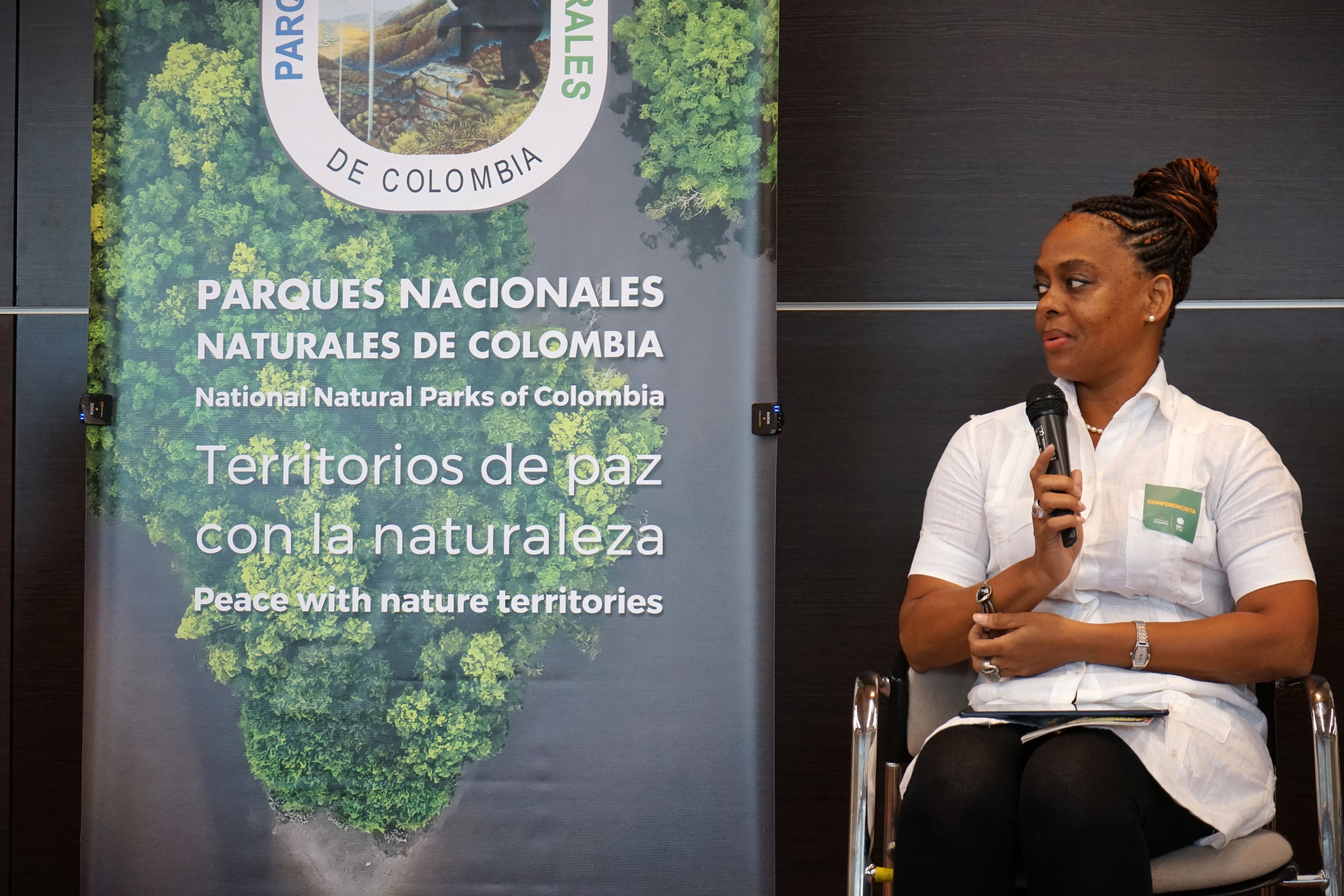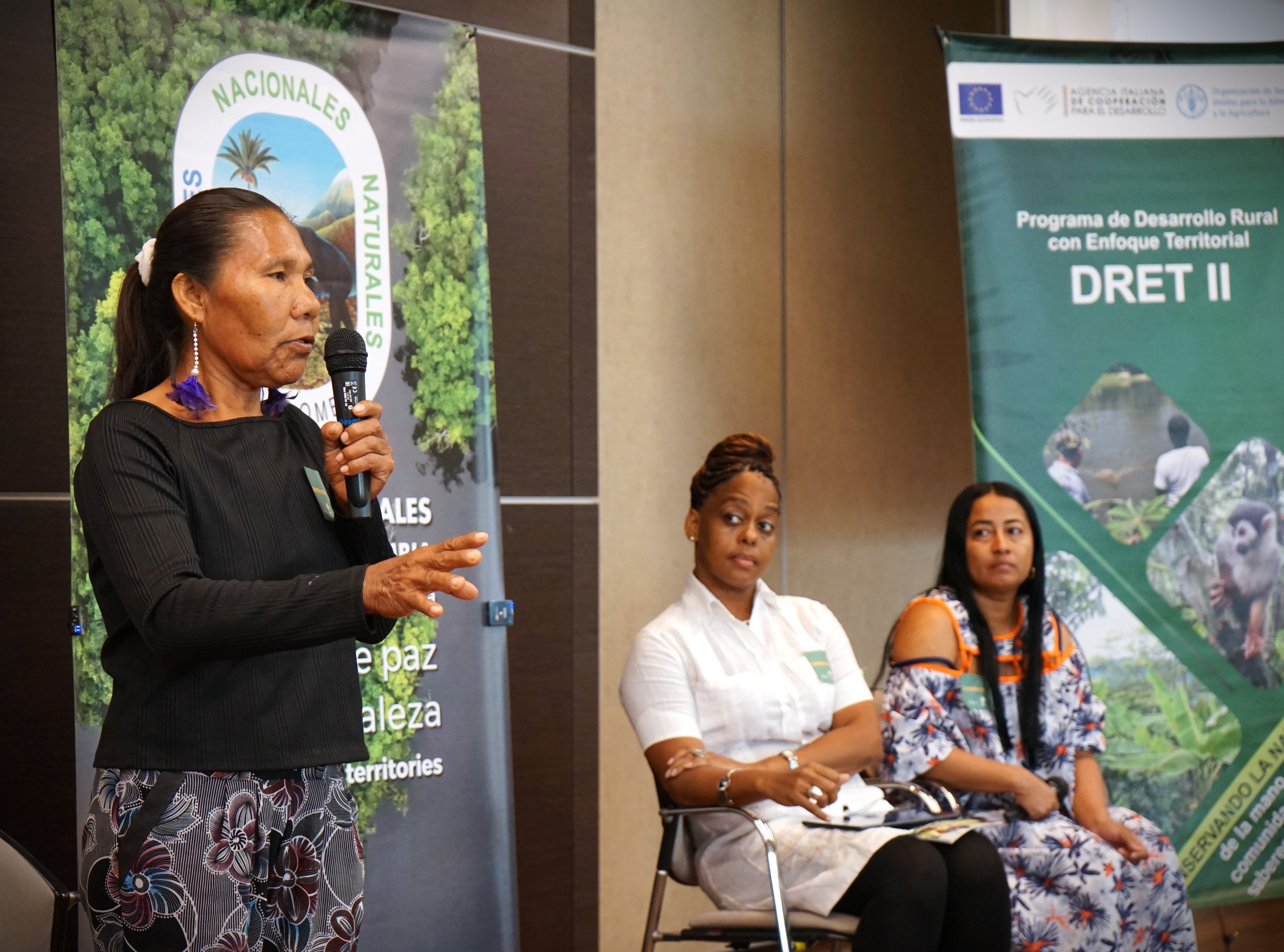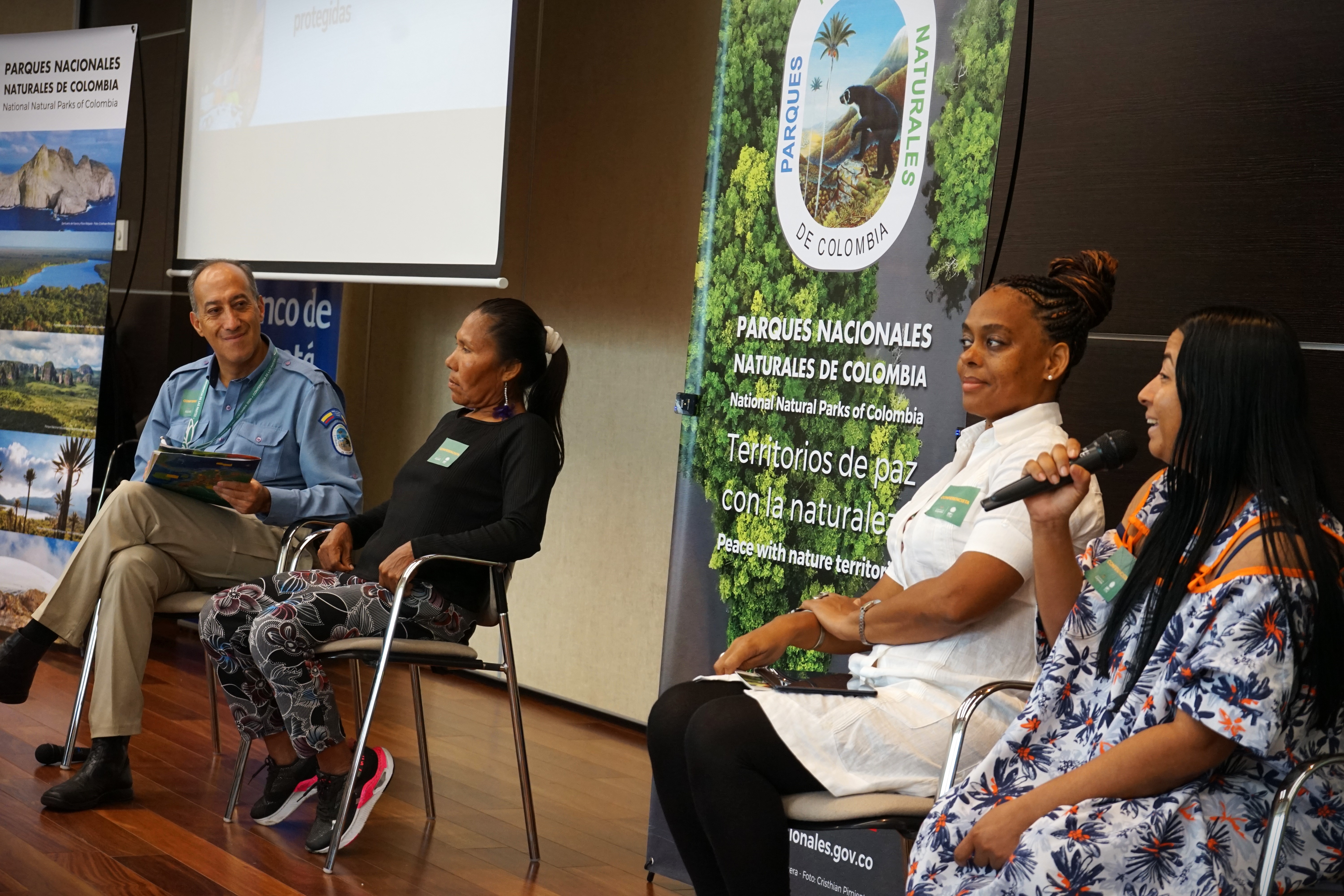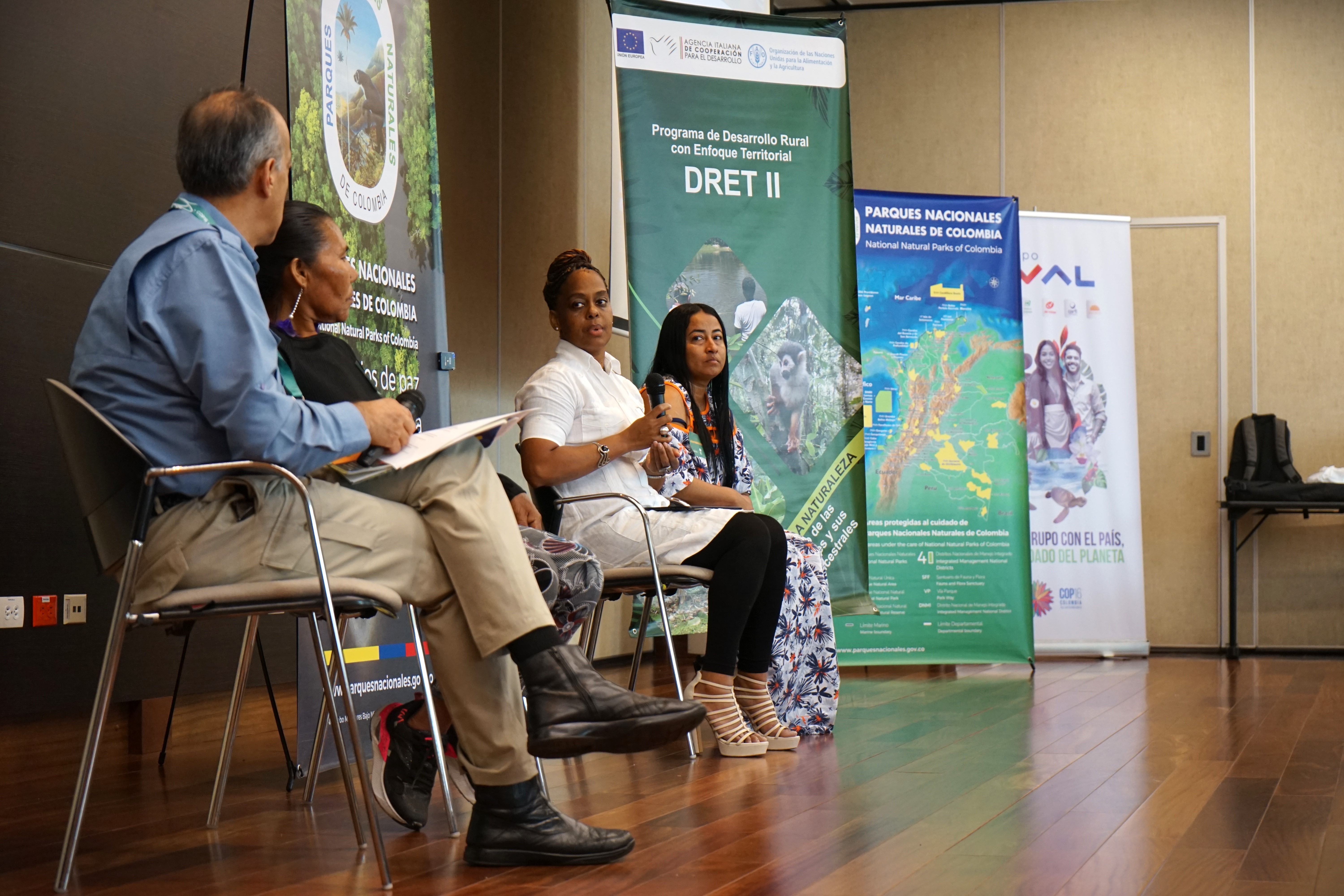During COP16 on biodiversity held in Cali, an event highlighted the crucial role of women in advancing food sovereignty and biodiversity protection. The gathering featured representatives from organizations working with the Italian Agency for Development Cooperation (AICS) in Cuba and Colombia, within the framework of Italian cooperation projects in both countries.
Organized by the European Union’s Programa de Desarrollo Rural con Enfoque Territorial (DRET II) in Colombia, AICS Bogotá’s South America Office, FAO, and Parques Nacionales Naturales de Colombia, with support from AICS Havana, the event showcased the experiences of women from Colombia and Cuba who shared their transformative work in sustainable futures.
The stories shared illustrated the impactful roles women play in agriculture and environmental conservation. From indigenous Colombian women who preserve native seeds and promote organic farming practices, to Cuban women implementing agroecological methods to strengthen their communities, each story underscored the dedication and innovation of these women.
In Colombia, women lead initiatives that not only feed their families but also protect local ecosystems. Their work extends beyond agriculture to maintaining ancestral traditions and fostering sustainable relationships with the land.
“Knowledge is essential. I was born in the countryside, and from a young age, I learned to value the land—a commitment I carry in my heart. We Wayuu women play a fundamental role in building peace with nature. We are guardians of our traditions and have the responsibility to pass down ancestral knowledge and environmental care to our children, ensuring our culture endures,” said Wayuu leader Mayra Quintero.
In Cuba, cooperation projects have strengthened gender strategies in rural settings, promoted by various Cuban institutions. These initiatives aim to empower women, recognizing their essential roles in sustainable development and food security.
“As an institute, we put science and knowledge at the service of communities. Every seed planted and every harvest gathered reflects the dedication of women. Thanks to our partnership with AICS and strong political will, we are committed to engaging with rural communities and developing a strategy that makes women’s roles as biodiversity custodians and pillars of family economy visible,” explained Idalmis Acosta Morejón, director of development at the Institute for Agroforestry Research (INAF).
Francisca, an indigenous Ticuna woman, emphasized, “Climate change is transforming our planet, and the future holds even greater challenges. I urge the wealthy people of the world: start planting and caring for our environment. As women, we teach our children the importance of protecting rivers and the land, for we all depend on it. Without Mother Earth, we cannot be happy.”
The event concluded with a clear message: food sovereignty is not just an individual right but a shared responsibility among all stakeholders. Women, who lead these efforts, are essential in building a more equitable and sustainable future for everyone.



